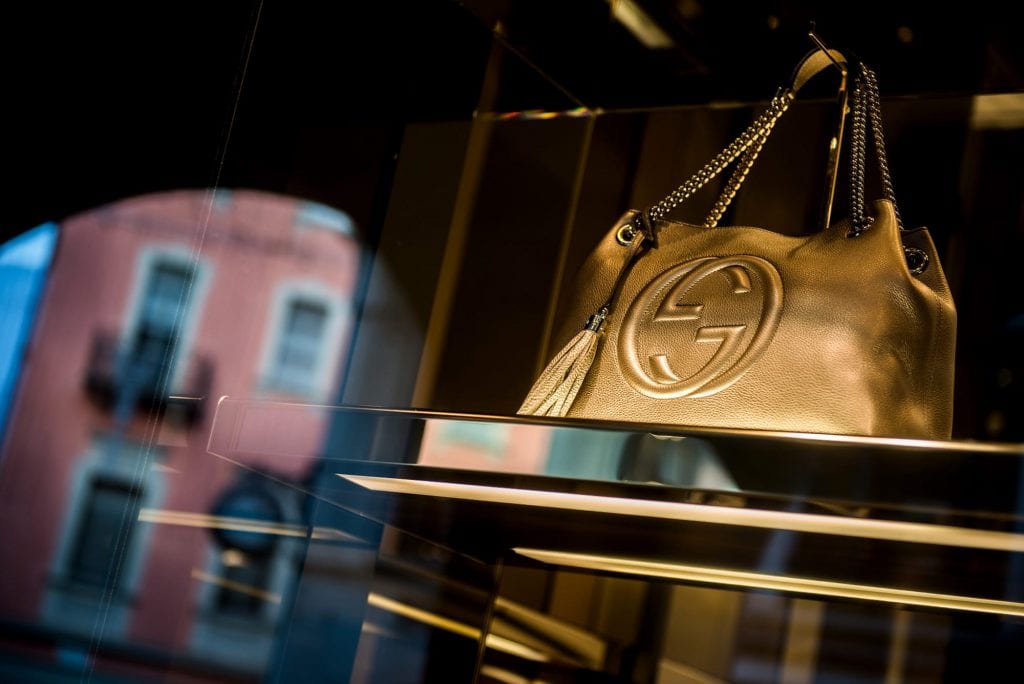
Interbrand is once again out with its top global brands list and once again, travel brands are nowhere to be found. Apple, Google and Amazon are the three most valuable brands, according to the company’s 19th Best Global Brands report.
Luxury is the new fastest-growing sector in percentage terms (42 percent), topping retail (36 percent) and electronics (20 percent). It’s important to note that while the luxury listings include fashion and lifestyle brands like Louis Vuitton (#18), Chanel (#23) and Hermès of Paris (#32), other high-end brands, like Porsche and Hennessy, are part of other categories.
Luxury brands are trending up, according to Rebecca Robins, Interbrand’s global chief learning and culture officer, because they have the trust of the consumer. “Trust is what’s at the heart of the top-growing brands,” she said.
There are several factors that are crucial to building consumer confidence. The brands on the Interbrand list generating the most stable growth over the past 10 years are those with the highest scores on responsiveness, relevance and authenticity.
“Authenticity [means] a brand based on an internal truth, with a defined story and a well-grounded value set. Responsiveness [is] the organization’s ability to constantly evolve the brand and business in response to, or anticipation of, market changes. Relevance [is] the fit with consumer needs, desires, and decision criteria across all relevant demographics and geographies,” Interbrand said.
The luxury brands on the list all over-index on these three attributes, Robins said. The report said these luxury brands “have managed to provide levels of access that, while retaining their authenticity and a level of exclusivity, have made their brands more desirable to more customers.”
For example, Hermès has one of the strongest performances on relevance of any brand on this year’s list, and also has achieved a double-digit increase in brand value during the past five years.
“Sustaining that level of increase is attributed to the brand’s relentless commitment to, and pursuit of, a culture of excellence in everything that it does. Hermès has continued to stay true to its DNA and origins in leather goods, while growing into a host of other categories,” the report said.
According to Robert Chavez, president and CEO for Hermès in the Americas: “It’s all about relevance. When you look at all the things that change – you cannot become irrelevant in fast-changing retail world.”
As an example, he cited the concerns of younger generations about sustainability, and the backlash against what he calls throwaway fashion. “What appeals to the next generation about Hermès is that we make our products with the finest materials, high quality craftsmanship, they are made to last a long, long time. There’s something about that [that] they find important.”
Luxury brands are also becoming more responsive to consumer demands, said Robins, “by becoming much more human. There has been a big move to open up access to luxury brands, to meet customers in emerging spaces.”
She cited as an example the recent announcement by Chanel that it will start producing cosmetics for men.
Hermès is responding to consumers by updating the in-store experience and through what Chavez called recruitment. “The reality is there are very few people who are coming to Hermès for the first time to buy a $2000 handbag,” said Chavez. “They are aware of the brand, and they are looking for categories so they can get into the brand at entry point prices. It could be a tie or a perfume or a scarf. Shoes have also become a major recruitment category.”
While Hermès’ has long been known for its colorful and often cheeky window displays, its newest stores go beyond the pane, taking on the zeitgeist of their neighborhoods.
For example, the recently-opened Palo Alto, California store features digital tables where clients can peruse the entire Hermès line with the swipe of a finger. Meantime, in New York’s hip Meatpacking District, Chavez said: “We take a more casual approach. There will be a coffee bar where you can plug in your phone and have a cappuccino. [It’s] a more relaxed ambiance…it’s not a huge store, but very approachable.”
Authenticity is another area where Hermès, like its top luxury competitors, gets high scores. “What is authenticity? It’s just being the real thing or not trying to fool people and be all things to all people,” Chavez said.
“Part of the problem today is that with business today is they want to get bigger and bigger and bigger and try to be all things to all people, and that’s never going to work. If you saturate the market, then the luxury customer doesn’t want it.”
Offering up advice to the travel industry, Chavez suggested: “The more authentic you are, the more you nurture your loyal clients, you draw clients to you if you are consistent with your service and your standards. That’s very appealing to people.”
Photo Credit: A gold leather handbag sits in the window display of a Gucci luxury goods store, in Lugano. Gucci is number 39 in Interbrand's Best Global Brands 2018 rankings Akos Stiller / Bloomberg
from Skift https://ift.tt/2R8S2nb
via IFTTT
No comments:
Post a Comment
Note: Only a member of this blog may post a comment.